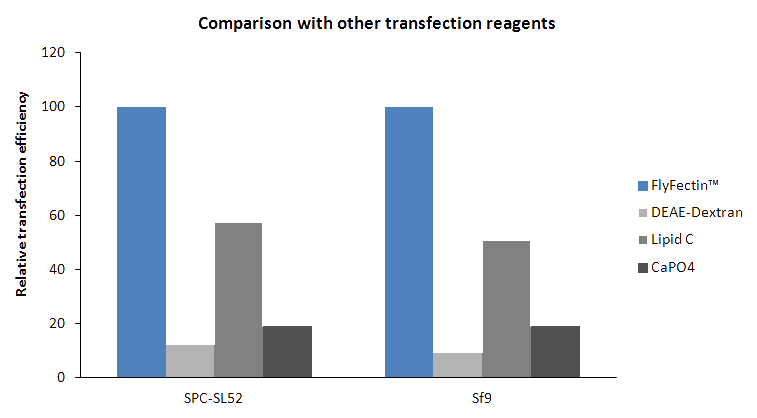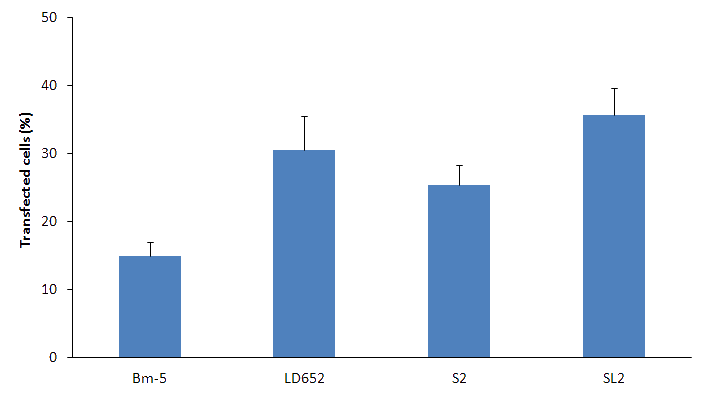FlyFectin™ Transfection Reagent is a powerful reagent based on the TEE-technology and specifically designed to obtain highly efficient and reproducible transfection of insect cells. It is adapted to the delivery of all types of nucleic acids. FlyFectin™ can be used for many applications including the production of recombinant protein using Baculovirus expression system.
FlyFectin™ has been effectively used with several insect cells. Ag55, Anso, Asd43, Bm5, Cl8, Cpp512, High5, IPBL-SF21, Kc167, Ld652, Mos20, S2, Sf9, SL-2, SL-3, SPC-SL52.
- Dedicated to insect cells
- Ideal for production of recombinant protein using Baculovirus expression system.
- Non toxic
- Serum compatible
- Simple, Ready-to-use and Rapid
Sizes:
- 500 µL (FF50500): 125 transfections with 1µg of DNA
- 1000 µL (FF51000): 250 transfections with 1µg of DNA
- 5 mL (FF55000): 500 transfections with 1µg of DNA
Shipping Conditions: Room Temperature
Application
- Suitable for all nucleic acid delivery: DNA, oligonucleotides, RNA...
- Perfect for all transfections in insect cells:
- Transient or stable transfection
- with or without serum...
RECOMMENDED FOR: Transfection of insect cells
Results
Figure 1: Transfection of various insect cell lines with FlyFectin. Cells were transfected in 6 well plate (LD652 and SL2) or in 25cm2 flask (S2 and Bm-5) with 2 μg of DNA (6 well) or 15-20μg DNA (flask) and 5 to 6 μL of FlyFectin per μg of DNA. Transfection efficiency was monitored 18 to 72 h after transfection.





